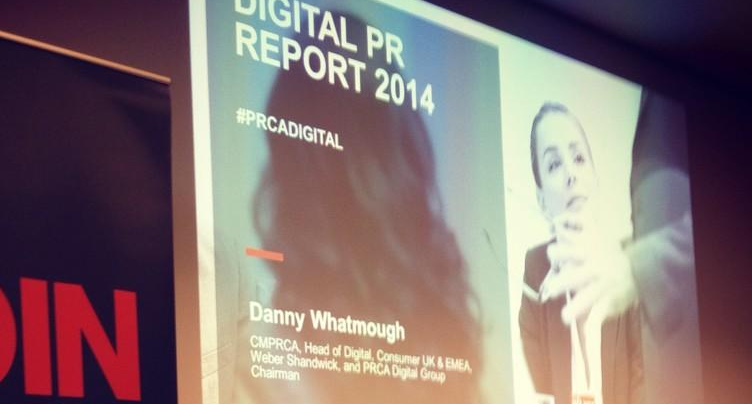
In September, the PRCA launched a new report into digital trends in the PR industry. Put together after a YouGov study of 228 agency and in-house PR professionals across a wide range of sectors, the results are, for me, both encouraging and worrying.
As a top line summary, there are five key points to consider.
- Digital remains the big growth area in PR. This really should come as a surprise to no-one. I hope.
- Agency and in-house skill sets continue to grow, which makes common sense considering the growth in digital and practitioners having no choice but to skill up.
- The division of labour between in-house and agency is changing. As PR marches towards becoming a digital-led industry, agency roles are becoming far more consultative than ever before.
- Paid media has opportunities, but agencies need to prove themselves. I’ve been banging the drum for paid media for a long, long time, but PR is naturally reticent to embrace it. Time to change, folks.
- Agencies need to position themselves around client needs. There’s a disparity between what agencies offer (or say they offer) and what clients want or demand.
Let’s take a closer look at these trends.
Digital PR Budgets
When it comes to the growth of digital PR, 62% of those surveyed reported that their budgets for digital and social media have risen in the last 12 months, while the same number expect budgets to increase in the next year. Against this, however, 44% typically spend only 1% to 10% of client budgets on digital and social media.
If budgets for digital are increasing but we’re spending that money on media relations and the like because ‘that’s what we know’, that’s a worrying statistic.
From experience, I’d also say the nature of those budgets is changing as well. Work is becoming more project-focused, with demands for creative content creation and campaign-led activity starting to become more common than the traditional PR retainer.
While that may scare a lot of the CEOs, MDs and FDs out there, I see this as an opportunity. For me, it’s a chance for PR to show what it’s really made of in terms of expert knowledge, creativity and proving ROI.
In-House as the Future
The future of social media community management is in-house. More than eight out of ten of those surveyed agree with me on this. So where does that leave PR agencies who focus entirely on the day-to-day management of Facebook pages and Twitter profiles? Or perhaps haven’t even reached that point yet? ‘In trouble’, is the answer to that.
PR agencies must start to build their detailed knowledge, skill and experience in social and digital media. They must start to be seen as the go-to people for expert advice and counsel, and the people who know how to produce a great content-led campaign.
The report identified a big discrepancy between what agencies are offering and what in-house teams expect from them. There’s a myth about PR and digital that PR agencies need to be able to build a website and to implement a strategic, in-depth SEO programme and to buy huge amounts of digital media space at knock-down prices. They don’t. What they need to do is to build their literacy in digital content creation so that they understand these things, and to partner with experts who can do them.
The major thing to bear in mind is that there are options for agencies when it comes to this point. Many, if not most PR agencies cannot afford to employ a senior digital media specialist on a large salary on a full-time basis. But they can afford to contract one on a part-time or consultative basis who can develop in-house skill over time as well as offer clients the trusted advice they require.
A quick word of caution though: do your research. There are a lot of ‘social media gurus’ out there who have no real grounding in active PR or marketing.
Service Offerings
It’s interesting to read that brand awareness and reach is the the primary reason that those surveyed want to invest in social media (87%), followed by customer service (51%). In line with this, content creation (58%), blogger outreach (53%) and digital crisis management (48%) are the most popular services on demand from PR agencies.
This all makes sense, and dovetails with a more traditional view of what PR is all about.
What PR has always been great at, and is founded upon, is reputation management and content creation. That has not, and should not change. If PR is to fight off the challenge from digital, advertising and SEO practitioners, it must play to its strengths.
That said, the media environment has shifted, even when it comes to social networks. It’s good to see within the report that 47% of those surveyed recognise the need and are prepared to boost Facebook posts as a result of algorithm changes.
But what about the other 53%? Burying your head in the sand or sulking off to another network is not (necessarily) the answer. Put it this way: you can pay to fish where the fish are, or you can go and fish for free where there aren’t any fish.
Paid media is here to stay. Get over it.
Skilling Up
I wasn’t surprised to read that 69% of PR professionals get their social media education from blogs. I know that’s where I pick up a lot of things that challenge me and make me think more broadly about client strategy. And sadly, neither was I shocked to read that 70% don’t think the digital training they receive is sufficient.
In my experience, mass-organised training courses for digital and social media are largely pointless. Based on theory and without a grounding in the reality of specific client requirements, they fail to provide access to the right tools for people to go away and continue their learning.
And this is important. Pretty much everyone I know who has reached a decent level in digital will tell you that they learned everything they know off their own back. Me included. They’re curious. They read. They talk to others on Twitter and in blogs.
Digital people learn through experimentation. They try. They fail. They try again. But they all live social media. They practice what they preach on a daily basis. And that’s where training courses fall down.
Successful social and digital media training has to be bespoke. Bespoke to agency, bespoke to clients, bespoke to people’s specific needs. So if you’re going down this route, choose very carefully.
That just about summarises the key points that I took from the report. What are your thoughts?
I know I hardly ever do this but that tells you what I think of this article. It is written by my good friend Paul Sutton, he kindly gave me permission to re-post from his blog as I thought it was so brilliant and on the damn money that I had to share it on my own blog. We have noticed a lot of the recent trends he covers here and I will be elaborating on the blog very soon. I hope you liked it as much as I did.




